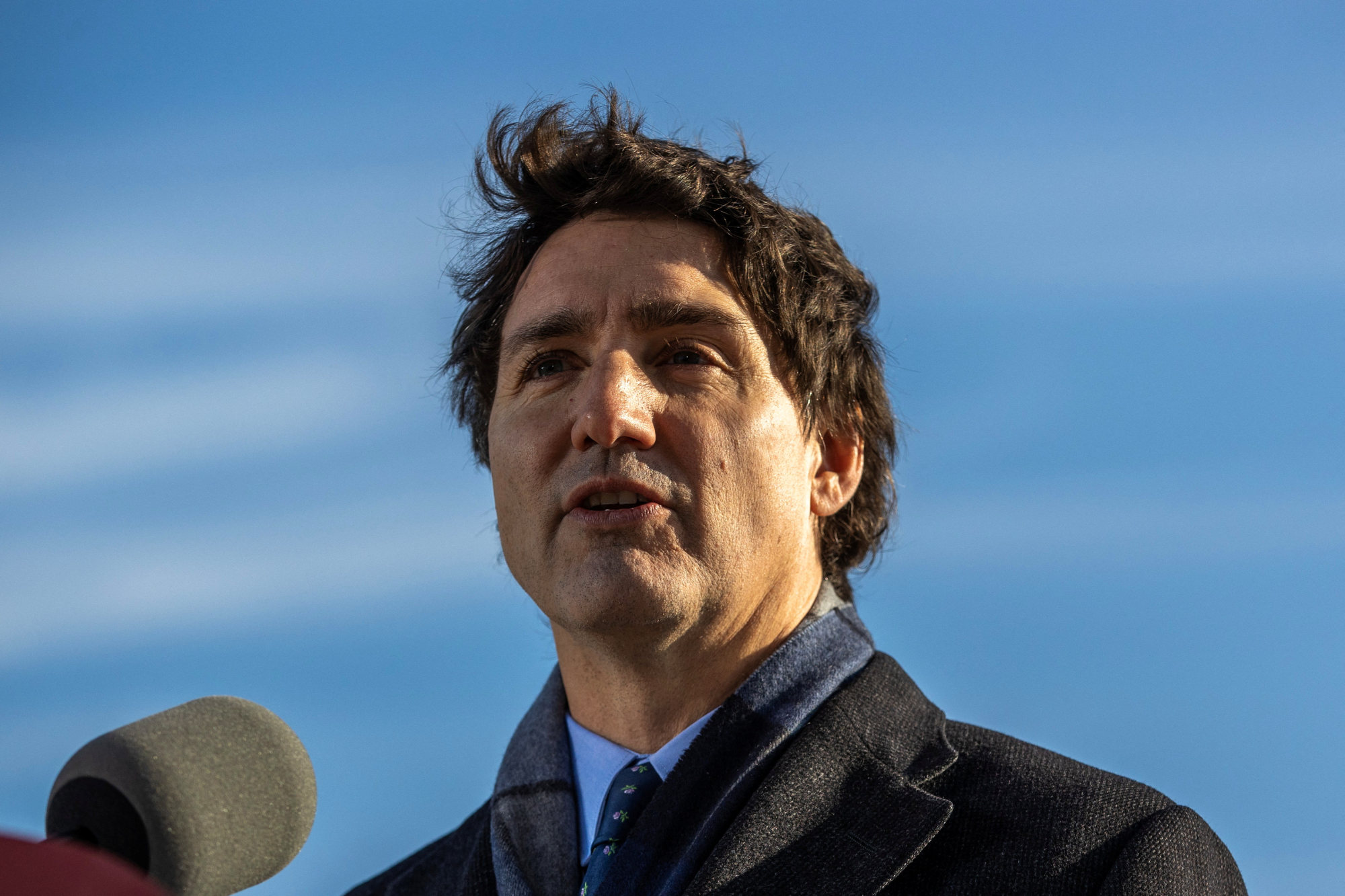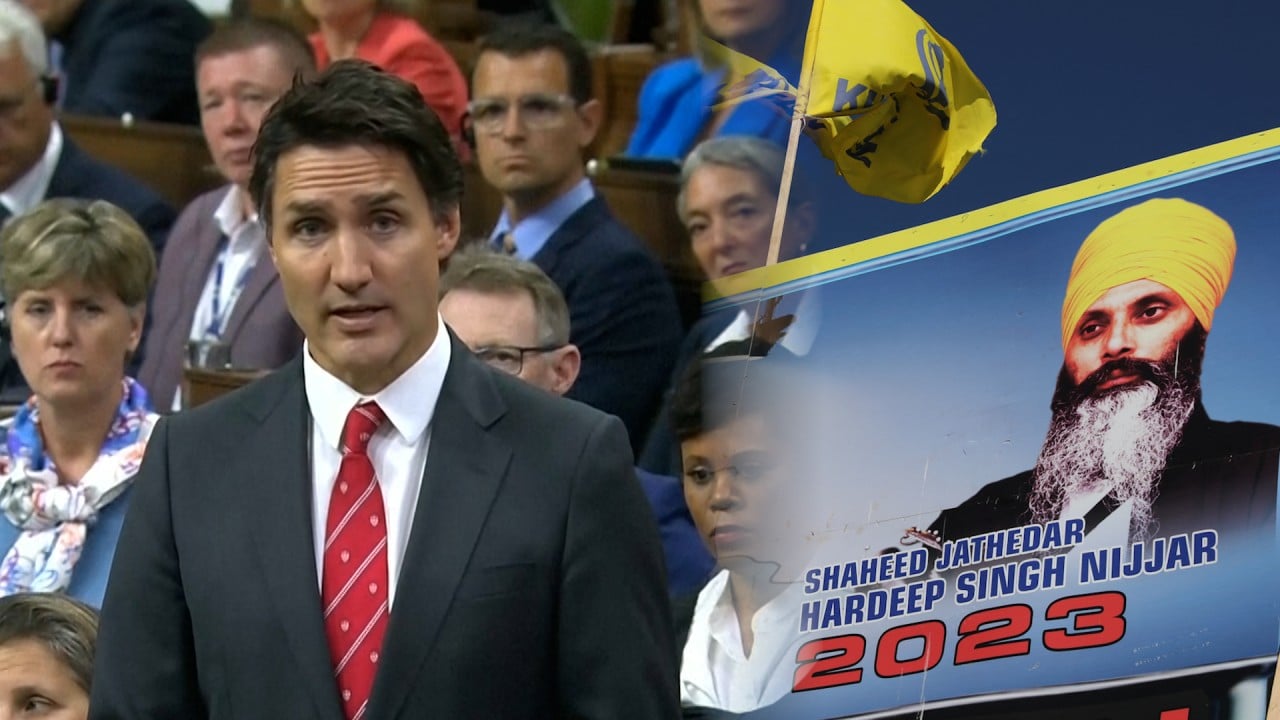India vows to investigate US charge that New Delhi directed plot to kill activist
Michael Kugelman of the Wilson Centre reckoned that a rapidly deepening partnership, “combined with strong strategic convergences around the China issue”, meant that the relationship with should “escape relatively unscathed”.
On Thursday, Indian External Affairs Ministry spokesman Arindam Bagchi in New Delhi described the charges as “a matter of concern”.
“India takes such inputs seriously since they impinge on our national security interests as well, and relevant departments were already examining the issue,” he added.
On Wednesday, the US Department of Justice announced charges in New York against Nikhil Gupta, 52, an Indian citizen accused of murder for hire and conspiracy to commit murder for hire.
As part of the indictment, prosecutors said that an Indian government official, described only as a “senior field officer”, had directed Gupta in a plot to kill an unnamed US citizen, who has been identified as Gurpatwant Singh Pannun, a Sikh activist who supports secession of Punjab from India.
US charges Indian national with conspiracy to assassinate Sikh separatist
US charges Indian national with conspiracy to assassinate Sikh separatist
As part of the plot, they said, Gupta offered $100,000 in June to a hitman, who was actually an undercover US law enforcement officer.
Similarly, in September, Canadian Prime Minister Justin Trudeau suggested that “agents of the Indian government” could be behind the assassination of Canadian Sikh separatist leader Hardeep Singh Nijjar, who was shot dead in Vancouver in June. The controversy led to the expulsion of diplomats on both sides.
The Justice Department filings show a link between the plots to kill Nijjar and Pannun.
Trudeau on Thursday reasserted his claims, saying that the US case underscored “what we’ve been talking about from the very beginning, which is that India needs to take this seriously”.

Frederic Megret, a law professor at McGill University in Montreal, said the “obvious answer” to the contrast in New Delhi’s reaction was that Trudeau “had only vague allegations whereas US courts have indicted someone on the basis of what seems like strong evidence”.
He added that “when confronted with such evidence it becomes much harder to claim that the allegations are absurd”.
Kugelman of the Wilson Centre said the manner in which Canada and the US levelled their allegations were “very different, and that has likely driven New Delhi’s different responses”.
“Ottawa made the accusation openly and publicly, while Washington took up the matter urgently but privately,” he said, adding that it was “not surprising that its response to Washington would be markedly less angry and defiant”.
US lawmakers voiced apprehension at the charges. “Political violence has no place in our country,” said Representative Mary Gay Scanlon, a Pennsylvania Democrat who is co-chair of the American Sikh Congressional Caucus.
“I’m proud to stand with our Sikh community against transnational repression,” she added.
But even the prospect of a foreign-directed assassination attempt on US soil was not going to alter Washington’s courtship of New Delhi, analysts said.
Reality is DC needs New Delhi far more than other way around
According to Richard Rossow of the Centre for Strategic and International Studies, the New York plot was “uncovered well ahead of some major US-India engagements. So: thorny, but not enough to trigger a course change”.
The key question, he said, was: “Will American public interest be elevated enough to put pressure on the administration to slow down engagement?”
Derek Grossman of the Rand Corporation asserted that the “reality is DC needs New Delhi far more than other way around due to Biden admin’s Indo-Pacific strategy to counter China”.
However, he added, such leeway wasn’t “unlimited and more bad behaviour could chip away at recent gains”.
The US and India are currently conducting joint military exercises in the northeastern Indian state of Meghalaya.
Top military leaders of Quad nations meet for Indo-Pacific security
Top military leaders of Quad nations meet for Indo-Pacific security
India is also a member of the US-led Quadrilateral Security Dialogue that includes Japan and Australia, which the US says is aimed at “maintaining peace and stability” in the Indo-Pacific. Beijing has dismissed the Quad as a “small clique” that is “bent on provoking confrontation”.
According to reports, US President Joe Biden has been invited by Indian Prime Minister Narendra Modi to the country’s Republic Day parade on January 26 as “chief guest”, and there could be a Quad leaders’ summit the next day in New Delhi.
Some Indian commentators blamed the Biden administration for targeting India.
Brahma Chellaney, a former adviser to India’s National Security Council, claimed that the US Justice Department was being “used against a friendly India”, citing Republicans’ complaints about the “weaponisation” of the department against political opponents.
And Zorawer Dulet Singh of the Institute of Chinese Studies in New Delhi described the indictment as “comical”.
“Such a bizarre scenario could only occur if the US had co-opted some Indians – this poor Indian official “CC-1” might even be a patsy – to malign India,” he said on the social media platform X, formerly known as Twitter.



 Slots with Welcome Bonus Up to 400%
Slots with Welcome Bonus Up to 400%